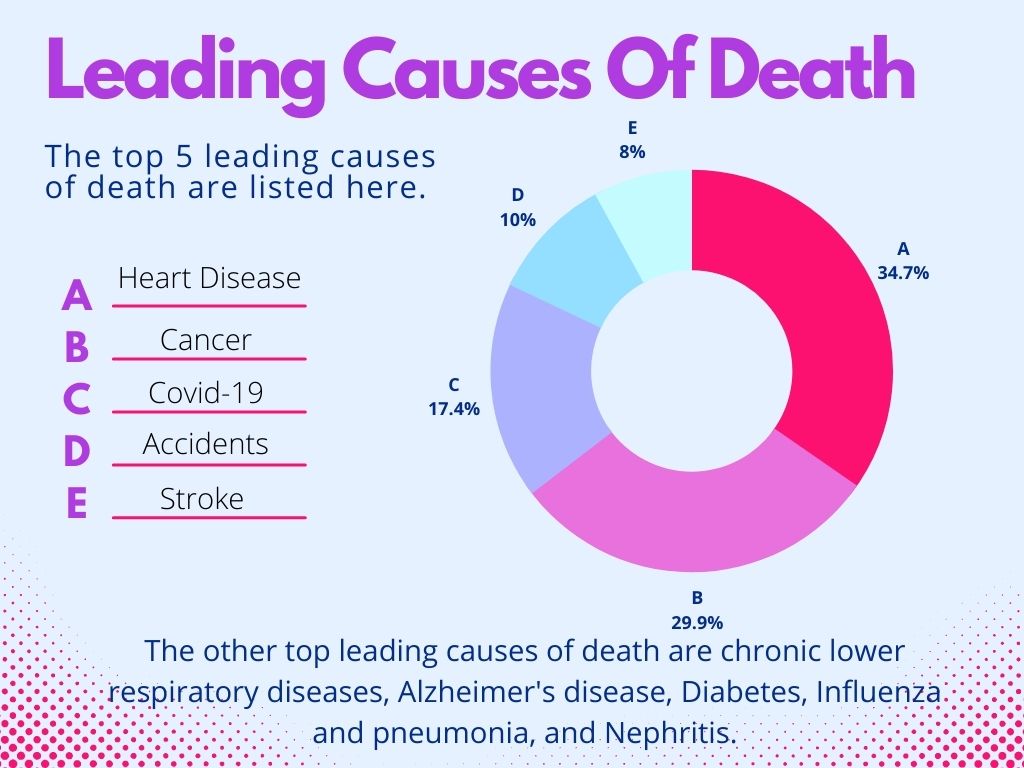1.1 State of Health in the US
Here is a list of the top 10 leading causes of death in the US and the number of Americans who died from these causes in 2020 as reported by the Center for Disease Control and Prevention (1).
- Heart Disease – 696,962
- Cancer – 602,350
- COVID-19: 350,831
- Accidents (unintentional injuries): 200,955
- Stroke (cerebrovascular diseases): 160,264
- Chronic lower respiratory diseases: 152,657
- Alzheimer’s disease: 134,242
- Diabetes: 102,188
- Influenza and pneumonia: 53,544
- Nephritis, nephrotic syndrome, and nephrosis: 52,547
As you can see in Figure 1.1, even though COVID-19 may have dominated the news cycle in 2020 and beyond, more Americans died from heart disease and cancer in 2020 than died from COVID-19.
Figure 1.1 Leading Causes of Death

Many of these leading causes of death are what we call chronic diseases because they come on slowly over time and are often related to lifestyle habits. In fact, 7 of the 10 leading causes of death are considered chronic diseases and may be related to an individual’s dietary choices and activity levels. COVID-19, accidents, and influenza & pneumonia often come on quickly so are generally not considered chronic diseases even though there could certainly be underlying chronic diseases contributing.
So where do we go from here? The first step is being aware of factors that influence your risk of chronic disease so you can make changes if you wish. It is important to recognize that many of these diseases have a genetic component, or a component that you do not have control over. However, there are many factors that you can control. These are your lifestyle risk factors. Some examples of controllable or somewhat controllable lifestyle factors include diet, physical activity patterns, stress, sleep, tobacco, alcohol, or drug use. Even if the genetic lottery is stacked against you, genetic predisposition does not mean genetic destiny. Genetics loads the gun but lifestyle pulls the trigger. This is why it is so important to be aware of what your genetic risk factors are and how you can modify your lifestyle to minimize your risk of chronic disease. It is estimated that 70-80% of longevity is related to lifestyle. Even if you have a high genetic risk for chronic disease, with a healthy lifestyle and preventative medical care you can often stay ahead of the disease process and avoid major complications or in some cases prevent the development of these diseases altogether.
Media Attributions
- Leading Causes of Death © Natalie Fox is licensed under a CC BY (Attribution) license
